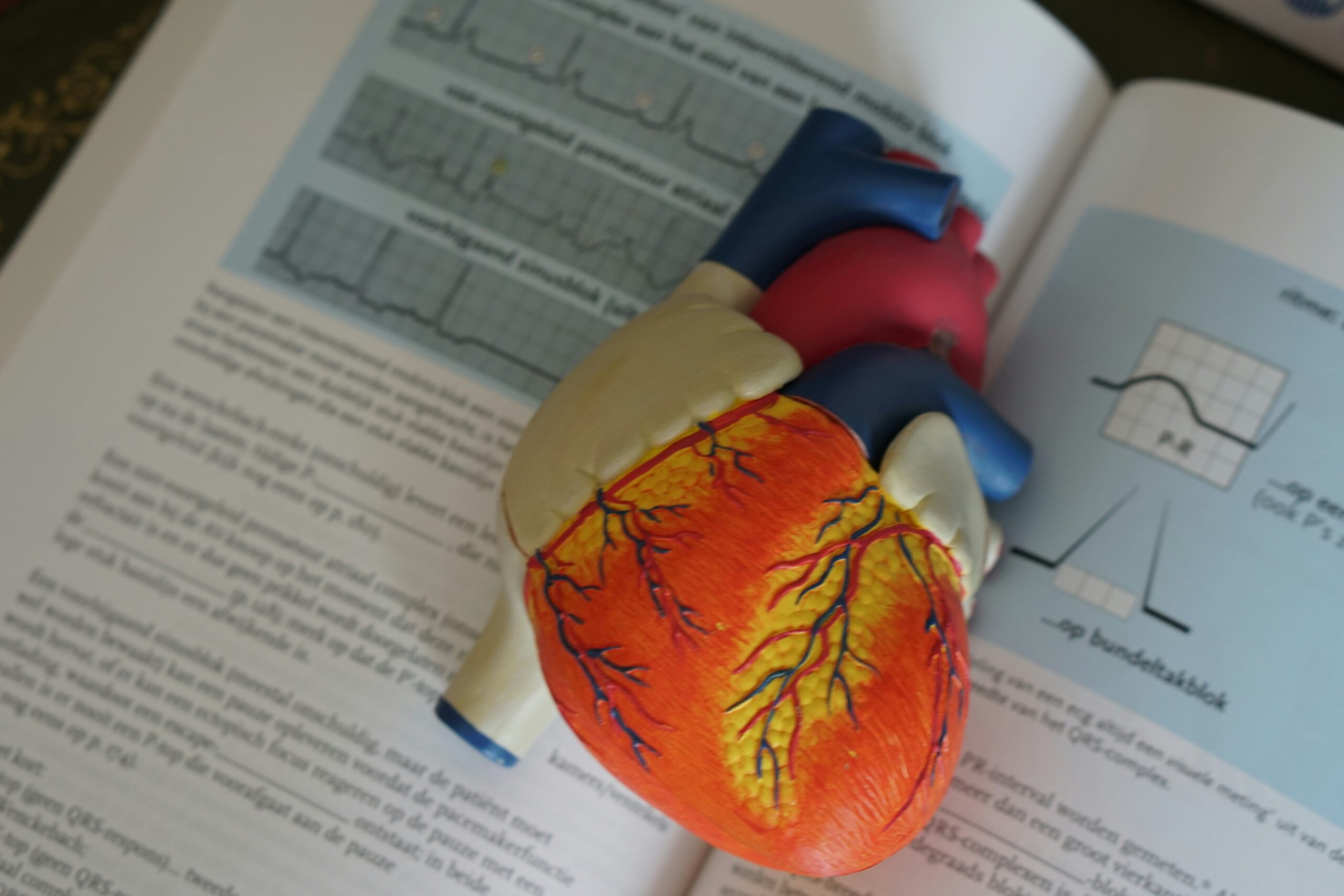Did you know that high blood pressure, also known as hypertension, can have a significant impact on your kidneys? It may surprise you, but your kidneys play a crucial role in regulating blood pressure. When hypertension goes untreated or uncontrolled, it can damage the blood vessels in your kidneys, leading to kidney disease or even kidney failure. In this article, we will explore the various ways high blood pressure affects the kidneys and why it is essential to manage this condition properly.

Overview of High Blood Pressure
Definition of high blood pressure
High blood pressure, also known as hypertension, is a medical condition characterized by persistently elevated blood pressure levels. Blood pressure is the force exerted by the blood against the walls of the arteries as it flows through them. High blood pressure occurs when this force is consistently higher than normal, putting extra strain on the heart and blood vessels.
Prevalence of high blood pressure
High blood pressure is a common health problem, affecting a significant portion of the population worldwide. According to the World Health Organization (WHO), approximately 1.13 billion people worldwide have hypertension. This condition is more prevalent in older adults, but it can also affect individuals of any age.
Effects of high blood pressure on the body
High blood pressure can have adverse effects on various organs and systems within the body. Over time, the constant force exerted by elevated blood pressure can damage the delicate walls of the blood vessels and lead to the development of conditions such as heart disease, stroke, and kidney damage.
Function and Importance of Kidneys
Role of kidneys in the body
The kidneys play a vital role in maintaining the body’s overall health. These bean-shaped organs are responsible for several essential functions, including filtering waste products and excess fluids from the blood, balancing electrolyte levels, producing hormones that regulate blood pressure, and controlling the production of red blood cells.
Importance of maintaining kidney health
Healthy kidneys are crucial for the overall well-being of an individual. By efficiently removing waste and excess fluids, the kidneys help maintain the balance of bodily fluids and electrolytes, ensuring the proper functioning of various organs. Additionally, the kidneys regulate blood pressure by producing hormones that help control fluid balance and the diameter of blood vessels. Therefore, maintaining kidney health is essential to prevent the development of various health complications.
Relationship Between High Blood Pressure and Kidneys
How high blood pressure affects the kidneys
High blood pressure can have a detrimental effect on the kidneys over time. The elevated pressure within the blood vessels can damage the delicate filtering units of the kidneys, known as nephrons. This damage impairs the kidneys’ ability to filter waste and excess fluids effectively, leading to the accumulation of toxins in the body.
Mechanism of kidney damage in high blood pressure
The exact mechanism by which high blood pressure leads to kidney damage is not fully understood. However, it is believed that the increased pressure within the blood vessels causes changes in the structure and function of the kidneys. The sustained force exerted by elevated blood pressure can result in the thickening and narrowing of the blood vessels in the kidneys, reducing the blood supply and impairing their ability to filter properly.
Hypertensive Nephropathy
Definition and explanation of hypertensive nephropathy
Hypertensive nephropathy, also known as hypertensive kidney disease, refers to kidney damage caused by high blood pressure. It is a chronic condition that gradually progresses over time. In hypertensive nephropathy, the damage to the kidneys is primarily caused by the sustained elevated blood pressure, leading to a decline in their function.
Symptoms and signs of hypertensive nephropathy
In the early stages, hypertensive nephropathy may not present any noticeable symptoms. However, as the condition progresses, individuals may experience symptoms such as blood in the urine, foamy urine, swelling in the hands or feet, fatigue, and high blood pressure that is difficult to control.
Risk factors for developing hypertensive nephropathy
Several risk factors increase an individual’s susceptibility to developing hypertensive nephropathy. These may include prolonged and uncontrolled high blood pressure, a family history of kidney disease, diabetes, obesity, smoking, and a diet high in sodium and processed foods. Additionally, certain genetic factors and underlying health conditions can also contribute to the development of hypertensive nephropathy.

Effects of High Blood Pressure on Kidney Function
Impaired blood flow to the kidneys
High blood pressure can lead to impaired blood flow to the kidneys due to the narrowing and thickening of the blood vessels. This reduced blood flow can prevent the kidneys from receiving an adequate supply of oxygen and nutrients, leading to the gradual decline in their function.
Damage to the blood vessels in the kidneys
The sustained pressure within the blood vessels caused by high blood pressure can cause damage to the delicate structure of the blood vessels in the kidneys. This damage can lead to the development of microvascular disease, including the formation of scar tissue and the accumulation of fatty deposits, further compromising the kidneys’ ability to function properly.
Decreased filtration rate
The elevated pressure within the blood vessels can also affect the kidneys’ filtration rate, leading to a reduction in their ability to filter waste products and excess fluids from the blood. This decreased filtration rate can result in the buildup of toxins and fluid retention in the body, contributing to the progression of kidney damage.
Increased protein in the urine
High blood pressure can also cause the kidneys to leak protein into the urine, a condition known as proteinuria. This is a common sign of kidney damage and an indicator of the kidneys’ impaired ability to filter waste products effectively. Increased protein in the urine can also further contribute to the decline in kidney function.
Chronic Kidney Disease and High Blood Pressure
Link between high blood pressure and chronic kidney disease
High blood pressure is a significant risk factor for the development and progression of chronic kidney disease (CKD). CKD is a long-term condition characterized by the gradual loss of kidney function. When an individual has both high blood pressure and CKD, it is known as hypertensive kidney disease. Moreover, uncontrolled high blood pressure can accelerate the progression of CKD, leading to more severe kidney damage.
Progression of kidney disease in relation to blood pressure control
Controlling blood pressure is crucial in preventing the progression of kidney disease. In individuals with high blood pressure and CKD, effective blood pressure management can help slow down the decline in kidney function and reduce the risk of complications. Medications, lifestyle modifications, and regular monitoring of blood pressure levels are essential components of maintaining optimal blood pressure control in individuals with kidney disease.
Management of high blood pressure in individuals with kidney disease
Managing high blood pressure in individuals with kidney disease involves a multifaceted approach. Lifestyle modifications, such as maintaining a healthy weight, adopting a balanced diet low in sodium and processed foods, regular physical activity, and reducing stress, play a significant role in blood pressure management. Additionally, medications, such as angiotensin-converting enzyme (ACE) inhibitors and angiotensin receptor blockers (ARBs), are often prescribed to help lower blood pressure and protect kidney function.

Secondary Causes of High Blood Pressure and Kidney Damage
Renovascular hypertension
Renovascular hypertension refers to high blood pressure caused by narrowing or blockage of the arteries that supply blood to the kidneys. This condition can lead to kidney damage over time, as the impaired blood flow can compromise the kidneys’ ability to function properly.
Polycystic kidney disease
Polycystic kidney disease is a genetic disorder characterized by the growth of numerous cysts in the kidneys. As these cysts grow, they can cause the kidneys to enlarge and impair their function. High blood pressure is a common complication of polycystic kidney disease, further contributing to kidney damage.
Other renal conditions leading to high blood pressure and kidney damage
Various other renal conditions, such as glomerulonephritis, diabetic nephropathy, and pyelonephritis, can lead to high blood pressure and subsequent kidney damage. These conditions involve inflammation or infection of the kidneys, which can disrupt their normal function and contribute to the development of hypertension.
Diagnosis and Monitoring
Methods of diagnosing high blood pressure
High blood pressure is typically diagnosed through a simple and non-invasive procedure known as blood pressure measurement. A blood pressure cuff is wrapped around the upper arm, and the pressure is measured using a sphygmomanometer. Blood pressure is usually expressed as two numbers: systolic pressure (the higher number) and diastolic pressure (the lower number). A diagnosis of high blood pressure is typically made when multiple blood pressure readings consistently show elevated levels.
Tests for evaluating kidney function
To evaluate kidney function, various tests may be performed. These include blood tests to measure creatinine and other waste products, urine tests to check for the presence of protein or blood, imaging tests such as ultrasound, and renal function tests, such as the glomerular filtration rate (GFR) calculation.
Blood pressure targets for individuals with kidney disease
The target blood pressure levels for individuals with kidney disease may vary depending on the severity of their condition and the presence of other comorbidities. In general, a blood pressure target of less than 130/80 mmHg is recommended for individuals with kidney disease to help slow down the progression of kidney damage and reduce the risk of complications.
Treatment and Management
Lifestyle modifications to control blood pressure
Lifestyle modifications are an essential component of blood pressure control. These may include adopting a balanced diet rich in fruits, vegetables, whole grains, and lean proteins, reducing sodium intake, maintaining a healthy weight, engaging in regular physical activity, limiting alcohol consumption, and managing stress through relaxation techniques.
Medications for managing high blood pressure and kidney disease
A variety of medications may be prescribed to manage high blood pressure and kidney disease. These may include ACE inhibitors, ARBs, diuretics, beta-blockers, calcium channel blockers, and direct renin inhibitors. The specific choice of medication will depend on the individual’s circumstances and any other medical conditions they may have.
Role of diet in kidney health
A balanced and nutritious diet plays a crucial role in maintaining kidney health. Consuming a diet that is low in sodium, processed foods, and added sugars can help reduce the risk of high blood pressure and kidney damage. Additionally, ensuring an adequate intake of fluids and incorporating foods that are rich in antioxidants and healthy fats can support healthy kidney function.
Prevention and Prognosis
Strategies for preventing high blood pressure
There are several strategies individuals can adopt to help prevent high blood pressure. These include maintaining a healthy weight, engaging in regular physical activity, quitting smoking, limiting alcohol consumption, reducing sodium intake, and managing stress effectively. Regular blood pressure checks and routine medical examinations can also help identify and address any potential risk factors.
Impact of blood pressure control on kidney health
Controlling high blood pressure is crucial for preserving kidney health. Effective blood pressure management can slow down the progression of kidney damage and reduce the risk of complications such as chronic kidney disease and hypertensive nephropathy. Regular monitoring and adherence to the recommended treatment plan are key in maintaining optimal blood pressure control.
Prognosis for individuals with high blood pressure and kidney disease
The prognosis for individuals with high blood pressure and kidney disease can vary depending on various factors, including the level of blood pressure control, the extent of kidney damage, and the presence of other comorbidities. With proper management and control of blood pressure, along with lifestyle modifications and appropriate medical treatment, individuals can significantly improve their prognosis and maintain optimal kidney function for a longer period. Regular monitoring and follow-up with healthcare professionals are essential for ongoing management and early detection of any potential complications.
